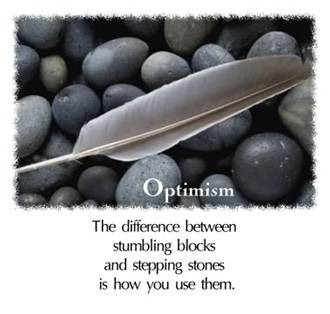Some people say that fear is the opposite of love and others say it is the lack of it. Regardless of the exact relationship between fear and love, they are strongly connected. If we want to have lots of happiness and love in our life, we need to make sure fear is not there to spoil the fun.
In a newsletter I wrote in February 2008, called “Angels of Love and Demons of Fear“, I wrote a story about the key holder. I am bringing it here again for you to see how I perceive the relationship between the two.
The key holder

One day, an old man came to the guesthouse and Tom, who loved listening to the guests’ stories, showed the old man his room.
“What is your name, son?” asked the old man.
“Tom”, said the boy.
“Tell me Tom, how come you are not playing with the other kids outside?” asked the old man and took off his shoulder a heavy bag, which made a metallic sound.
“They make fun of me and call me names”, said Tom and helped the old man unpack.
“That is not nice. What do you love Tom?” asked the old man and open the bag, showing hundreds of big, heavy metal keys.
“Nothing”, said Tom. Then, thought about it for a second, “Actually, I love stories. The guest here have wonderful stories”, he said, “What about you?”
“I love keys”, said the old man and shook his bag, “What about fears? What are you afraid of?” he asked Tom, putting his hand into the bag and looking for a key.
“I am afraid of the kids and that one day people will stop coming to our guest house and that someone might get hurt…”, but before he finished his sentence, the old man held a key in his hand and said excitedly, “Yes, I have got it”, and he came closer to Tom.
“Come, sit next to me. I have the key you need”, said the old man and showed Tom a large metal key. “I’ll tell you a story. Legend says that just before you were born, the angels had a farewell party for you. As a gift, they gave you two boxes – one was a love box to put all the good and happy things in your life and one was a fear box, to hold all the things you do not like or are afraid of. When you open the love box, angels fly around you and make you even happier, but when you open the fear box, demons take over and you feel scared and sad. We all had that gift at our farewell party. We were given the boxes, but we didn’t get the keys to open them.”
Tom looked at the bag of keys and got his hand in. The keys were very heavy.
“Why do we need the keys?” asked Tom.
“To open the love box and close the fear box”, said the old man.
“Do you have the keys?” asked Tom.
The old man smiled. “I am the key holder. I have just the key for you”, he said and handed Tom the key.
Tom held the key in his hand. He felt strong and happy. He smiled and remembered the magician guest who showed him some magic tricks. That was fun. He looked at his key and it made him feel great. For a second, he forgot the old man, who walked back to his bag and tied it slowly. Tom was so happy and excited he wanted to run to the kids outside and show them his magic love key. His love box was wide open.
“Thank you, thank you! It is a wonderful key. Can I keep it?” asked Tom.
“Sure, it is yours”.
“What about your key?” asked Tom.
The old man showed him a heavy key on a chain around his neck.
“I’m fine. My key is safe and sound”, he said and started packing his things.
“Are you leaving already?” asked Tom in fear. His parents would be upset to see the old man leaving so soon.
“Many keys to deliver”, said the old man and stood at the door with the bag of keys on his shoulder. Tom looked at the key around his neck. There was only one key. He could not stop thinking about the fear box. He felt the demons all around him and he wanted to keep them locked.
“What about the other key?” Tom asked the old man just before he left his room. The old man turned his head to Tom and smiled.
“The fear box opens only when the love box is closed”, he said and left the room.

Unfortunately, you cannot fight anything you cannot define. If we want to get rid of our fear, we must know what it is first.
As you know, I like the technique of making a list to recognize and change something we do not like. Making a list of 100 fears can help you identify the blockages in your life. If you are unhappy with your achievements in some area and you dig deeply enough, you will find there is some fear associated with achieving more. If there is a destructive pattern in your behavior and you look at it closely, you will see it is rooted in some fear.
I tell my clients that this list is a big part of our action plan. If we want to achieve something, we must clear the way to it of all the things that are blocking us from making progress and fear is always at the source of those blockages.
As you may know from making other lists (see Make a List), writing down is a way for you to recognize what happens in your mind instead of letting it consume you. This is a private list, just for you, so be honest and do not be afraid to face your thoughts and feelings. That is the idea of this list, after all.
How to list your fears and overcome them
Write everything that comes into your mind quickly and without judgment. Whether it is a statement, a phrase or just a word, writes it down. The faster you write, the more fears will come out of your subconscious. Let your associations run free.

When you are angry and agitated, your list will be different from when you are in a good mood. When we are upset, we are much more fearful (this is why we are upset). In that sense, it may be better to write down your fear list when you are upset. I am not sure everyone is able to do this, but if you can, you will probably find even more distressing thoughts than you normally would.
Do not be afraid of repetition. If things seem to be similar to what you have already written, write them down anyway. This will help you find out what keeps your mind occupied the most. At the end, you can combine them into one big item with their collective importance.
Go over your life areas and find fears in each of them. What are your fears regarding your health? Others’ health? Money, relationships, career, friends, purpose and emotions (what feelings are you afraid to feel?).When searching for fears, remember that anxiety, stress and confusion are versions of fear. Ask yourself, “What worries me?”, “What makes me stressed?” and “What makes me feel confused?” At the root of each of the answers, there is some fear.
Rate your fears. Fears come in different strengths. Some of them are small and others are so big they are overwhelming. It is important to think of how much you are afraid of a particular issue. If you are just a little bit afraid of something, give it a 1. If you are really, really afraid, give it a 10. Rating is a very good technique in personal development that allows you to find the best areas to improve. You may find you have many fears rated 2-3, but the ones that stop you from being happy are in the 8-10 range. Focus on them first!
When you have completed your list, split your fears into life areas. This will help you discover which area is of most concern for you. Several of my clients wrote many financial fears. As we discussed them, they found common sources for some of those fears. As we worked through the solutions, we discovered that some of them relieved several fears at once and made progress a lot faster. By grouping your fears into their life areas, your journey to happiness may be shorter too.
Next to each fear, to write why you think you are afraid. More than spotting the fear, it is important to know what created it. Sometimes, something painful happened in the past and you are afraid of feeling this pain again. Other times, your fear may have no connection to the past. For example, some people are afraid of losing their money not because they have lost money but because they have a belief that “good things don’t last forever”. Another example is a husband who is afraid his wife might have an affair with someone else. She has never done it, but he is afraid he may not be good enough (for her). The reason for your fear is important, because the solution to a fear of a painful experience from the past is different from the solution to a fear based on a belief.

Another important thing you can find by asking “Why?” is who caused your original fear. Many people discover their fears were created by something their parents, siblings or other important people have said to (or about) them and that they keep holding these fears long afterwards. It is important to find out who started your fears, because peoples’ authority and the validity of their statements fade over time. For example, parents’ words are not as important to a 35-year-old man as they are to a 5-year-old boy. Another reason is that circumstances change and while the original fear was appropriate at the time, it may not be relevant anymore. Even those people change and may no longer think the same way. For example, my parents were very afraid when I chose to start a business with my sister. They had had a bad experience mixing family and business and they did a lot to make me change my mind. At first, I was concerned, but then, I decided to go ahead anyway. After two successful (and peaceful) years in business with my sister, their fear changed. Instead of saying, “Every family business relationship is doomed to fail”, they changed it to, “Some family business relationships fail, depending on the people involved”.
The third part of asking “Why?” is to think of the circumstances that have created the fear. I have a good financial example. While we had to be very calculated with our spending when we were a poor family with 7 mouths to feed, it was no longer the case when I started working and earned lots of money. So there was no point holding on to the fear that the money would run out. I lived in a different generation, I had a different partner, I had a profession, I had lots of savings and I did not have 7 mouths to feed, so I changed my fear to the belief “I have plenty of money. I have enough for a rainy day”. That way, I was no longer afraid of money running out. When you find the fear circumstances and the time it was created, ask yourself, “How have circumstances changed since?” It will help you discover that there is always change. You have changed. You are not the same person. You have more skills, more experience, more support, more resources, etc.

The process of changing your fears may be long and challenging, but it is very important. It involves recognizing your fears, finding their sources, shaking the fears and chasing them away, then swapping them with powerful, forward-facing and positive beliefs of love and happiness. This process never ends, because the fears never disappear and new circumstances breed new fears. With the list activity, some of them fade and are not strong and debilitating as much as they were before. Do not be afraid to try!
Have a nice and easy discovery process.
Be happy!
Ronit
This post is part of the series Make a List:
- Make a list: List Making
- Make a list: About Myself
- Make a list: Friends and Friendships
- 100 Things I Want to Be, Do and Have in My Lifetime
- 100 Things that Make Me Happy
- Make a list: Childhood Memories
- How to Clean Away Resentment and Be Happy
- 100 Ways to Say “I Love You!”
- Make a list: What I like about me
- Make a list: Birthday Presents to Ask for
- Make a list: Improve My Life
- Make a list: Things to tell my parents
- Make a list: Beliefs about Money
- 100 Feelings I Want to Feel (and how to feel them)
- Make a list: If I Could Live Forever
- Make a list: Beliefs about Kids
- Make a list: Beliefs about Kids cont.
- Make a list: Events that Have Shaped Your Life
- Make a list: Ways to be kind
- Make a list: Be More Productive
- Make a list: Mistakes (and what I can learn from them)
- Make a list: Expectations
- Make a list: Beliefs about Traveling
- Make a list: Rules I Follow
- Make a list: Good Parenting Qualities
- Make a list: Excuses
- Make a list: Quotes to live by
- Make a list: How to use my time better
- If I Were Santa Claus
- What I Would Do If I Had One Year to Live
- 100 Things that Make Me Happy
- Make a list: Movies I loved
- Make a List: My Fears
- Make a List: Find your Happy-ism
- Make a List: Inspiring People
- Make a List: Books that have changed my life
- Make a list: Inspiring Movies
- Things to Be Grateful for
- Make a List: Ronit’s Gratitude Examples List
- Make a list: Life Lessons Learned
- Make a List: Self-Kindness
- Make a List: 100 Ways to Be Kind to Myself
- 100 Things I Want People to Think of Me
- Make a List: Judgment of Right from Wrong
- Make a List: 100 Reasons to Be Wealthy
- 100 Great Insights I Got from the Coronavirus
- How to Make Every Relationship You Want Good
- If I Only Knew: How to Learn from the Past











